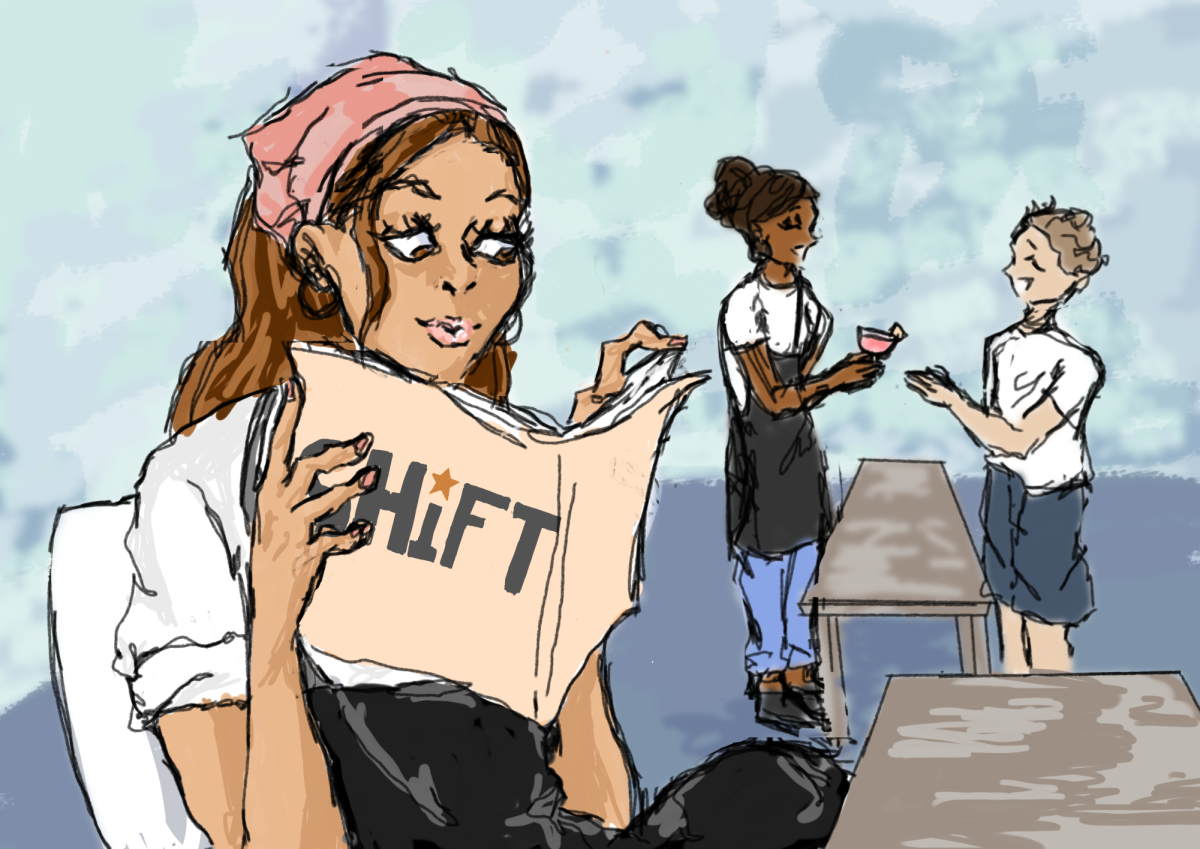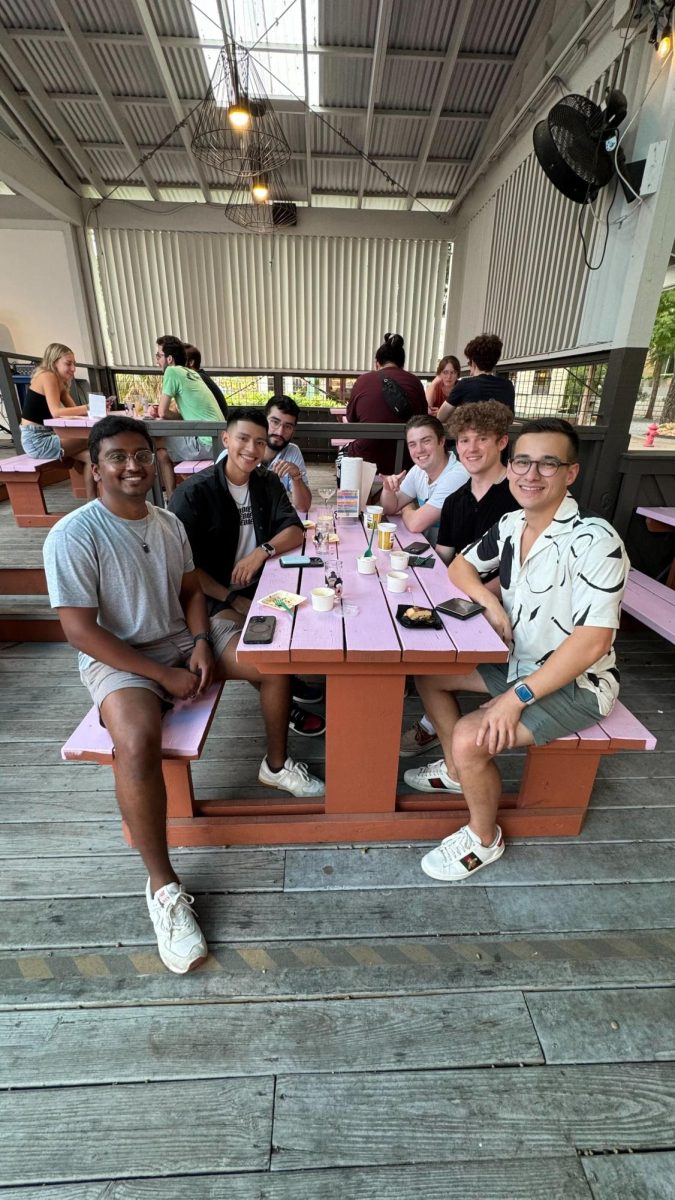In her revealing memoir, “Suits: A Woman on Wall Street,” Nina Godiwalla describes the cost of being different in a fast-paced, white male-dominated society powered by a thirst for power and money. From day one of her undergraduate internship at J.P. Morgan, Godiwalla was an outsider. As a woman, a UT student and the daughter of two Indian immigrants, she was a cultural anomaly among the white, affluent, Harvard Business School types on Wall Street.
Though the deck was loaded against her, Godiwalla found success on Wall Street through skill, hard work and shameless assimilation. She describes memorizing the scores of Knicks games to avoid embarrassment and watching senior officers swap special currency for an exclusive strip club during their corporate dinner. “I was both in awe of their power and disgusted by their callousness,” Godiwalla writes of some of her superiors. Somewhere between the grueling, 80-hour work weeks, the fancy dinners saturated with chauvinist remarks and her constant fear of screwing up, Godiwalla found the time to ask herself a very important question: Is this worth it?
Nina Godiwalla will be a featured author at the upcoming Texas Book Festival this weekend and spoke with The Daily Texan earlier this week.
Daily Texan: You started your first internship with JP Morgan your freshman year and continued interning with prestigious Wall Street firms for the rest of your college career. What was it like being so immersed in the financial world as a college student? Do you feel like you missed out on the typical college experience?
Nina Godiwalla: My college experience was a little reversed. I started interning in intense Wall Street environments my freshman year, while many of my UT classmates were taking it easy. It seemed like they didn’t really start taking their classes and job search too seriously until their junior year. With two Wall Street internships by my junior year, I had it easy because I was ahead of everyone. I got to pick from any job I wanted. I did miss out on socializing my first two years, but then got to make up for it my last two years while everyone else was working hard around me.
DT: What did you do after leaving investment banking?
NG: After I left Morgan Stanley, I worked in a couple other finance jobs in New York City. By then I was four years out of undergrad and most of my counterparts were applying to MBA programs. I, however, wasn’t sure I was ready for business school. I felt I missed out on the “taking classes for fun” concept in undergrad so I enrolled for a MA in liberal arts at Dartmouth. My thesis for my MA was the first draft of “Suits.” Before getting it published, I got an MBA and worked in brand management at Johnson & Johnson. A couple of years ago, when the economy started to tank and my corporate job wasn’t as rewarding, I dusted off my “Suits” manuscript and found a publisher. I now run MindWorks [mindworkscorp.com] which teaches leadership courses focused on stress management and self-awareness. Through MindWorks, I’m teaching leadership courses at McCombs this year. I’m also part of a national speaker’s bureau and present on leadership and diversity issues.
DT: Obviously you wrote this book a while ago, but since then problems on Wall Street have not gone away. How do you think the Wall Street culture you wrote about in the book has played a role in accountability issues that have sparked protests like “Occupy Wall Street?”
NG: One of the reasons I teach leadership courses focused on stress management and self-awareness is because during my Wall Street experience, I saw how detrimental it can be to have leaders who operate on fear. There tends to be more blame than personal accountability. I’ve been called on by major media many times to comment on Occupy Wall Street. I think the movement has been a great outlet for people to voice their concern that, even though Wall Street executives have money and power, they need to be held accountable just like everyone else.
DT: In the book you say, “In college, I would’ve laughed at the idea that being in business could be different for women than for men, but only a few weeks into my Morgan Stanley experience, I completely understood.” What advice would you give to women and minorities in college at UT seeking careers in business?
NG: Being a minority or woman in investment banking, where there are few, is similar to walking into a cocktail party where you don’t know anyone. It’s not impossible to navigate; however it takes more effort. Just being aware of this and knowing you may have to put in extra time to navigating the system will put you ahead of others.
DT: In the book you mention “celebrity kids,” interns who have landed the internship through family connections, and mention they were spread across intern teams so other interns could pick up the slack for them. How prevalent was this kind of favoritism on Wall Street and do you think that, for people in privileged positions, it is still easy to find success on Wall Street today?
NG: People of privilege will have an easier time anywhere. At almost every job I’ve had. There have been people who aren’t great at what they do, but no one is willing to ruffle feathers because they are the “son of a client” or “daughter of a major investor.” It’s the reality of our world. I’ve let go of some of my idealism and just learned to accept it.
DT: One fascinating part of the book is when you describe feeling the callousness of senior officers rubbing off on you. You describe feeling like someone with a split personality. Could you say a little more about that phenomenon?
NG: Sometimes we think we can go into an experience and come out the same. Not always. In my banking experience, the hours were so grueling that there were few personal outlets. I was cut off from friends and family. Because I was so immersed, despite the fact that I didn’t like the way some senior managers treated others, they started to rub off on me. Choosing a job where you feel comfortable with the corporate culture is critical because it is more likely it is going to change you than you are going to change it.
Printed on Tuesday, October 18, 2011 as: Alumnus notes efforts as a woman on Wall St.














